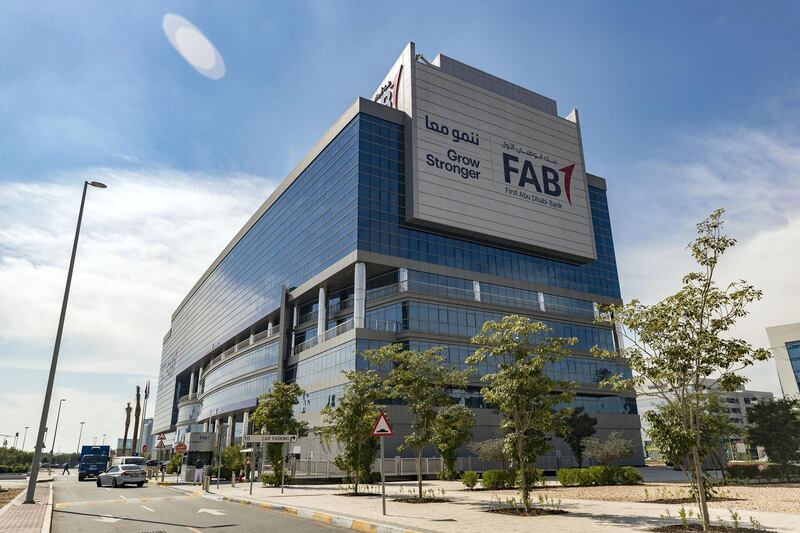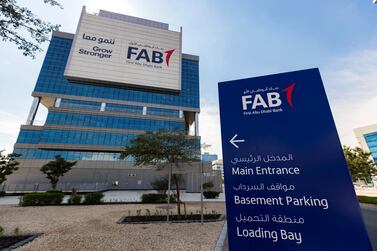First Abu Dhabi Bank, the UAE’s largest lender by assets, reported a 25 per cent drop in its second quarter net income, dragged down by a rise in provisions amid the pandemic-driven economic slowdown.
Net profit for the three months to the end of June fell to Dh2.41 billion, FAB said in a statement to the Abu Dhabi Securities Exchange, where its shares trade. Net impairment charges for the reporting quarter climbed to Dh1.06bn from Dh467 million a year earlier.
The lender's first half group net profit declined to Dh4.8bn, from Dh6.3bn in the year earlier period. Operating costs for the period declined 3 per cent year-on-year to Dh2.6bn.
Total assets at the end of June grew 12 per cent year-on-year to Dh866bn. Loans and advances jumped 5 per cent to Dh385bn, while customer deposits at Dh519bn were up 12 per cent from a year earlier period, despite economic headwinds.
“FAB delivered a resilient performance in the first half of 2020 in a period of unprecedented challenges," André Sayegh, FAB's group chief executive, said.
"Looking forward, FAB will embrace change and opportunity as the world enters a new normal, and as we remain firmly focused on delivering long term value for our customers, shareholders and the wider community."
Lenders globally are facing headwinds amid tough operating conditions with many taking on provisions for bad loans and an increase in defaults. Profit margins are under pressure as loan growth slows and interest rates remain low. JPMorgan, America's largest bank, set aside $10.47bn (Dh38.4bn) to cover bad loans which halved its second-quarter profit.
The world economy is set to slide into the deepest recession since the Great Depression, with the International Monetary Fund projecting a 4.9 per cent contraction this year and a sluggish recovery in 2021. As business slows, lenders are looking to control costs and make prudent provisions for expected loan losses.
In the UAE, the economy is rebounding after movement restrictions forced the closure of all but essential businesses in the country. The number of Covid-19 cases are on the decline and fiscal and monetary support, including the Dh256bn Central Bank of the UAE stimulus package has helped banks to continue lending and supporting clients during the unprecedented economic volatility.
"During the second quarter, we focused on providing financial relief to our customers in line with the UAE Central Bank Tess [Targeted Economic Support Scheme] programme, as well as through the bank’s own initiatives," Mr Sayegh said.
The bank ensured "prudent lending and diligent risk management" and it remains committed to "continue to support in clients and the broader UAE economy through these unpredictable times", he added.
The bank, formed through the merger of National Bank of Abu Dhabi and First Gulf Bank in 2017, is at the forefront of Abu Dhabi’s economic development efforts and is supporting the government’s Ghadan 21 stimulus initiative.
The lender issued a dual-listed, 1.4 billion Chinese yuan (Dh726.4 million) five-year formosa bond last month.








